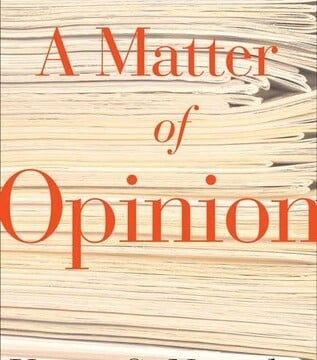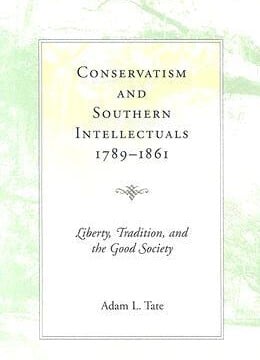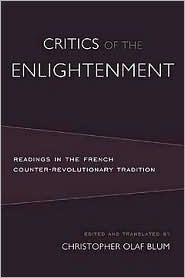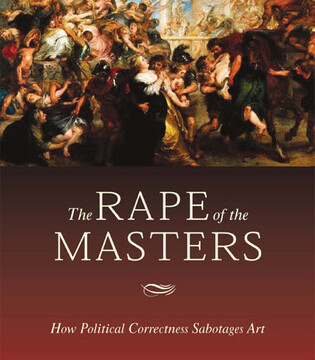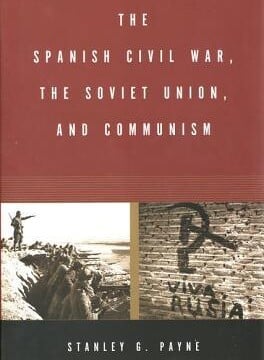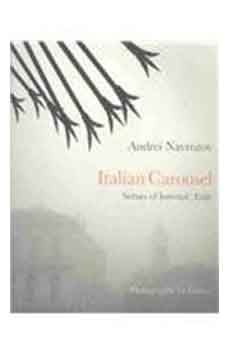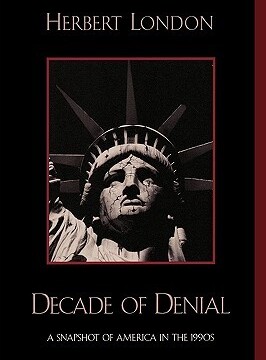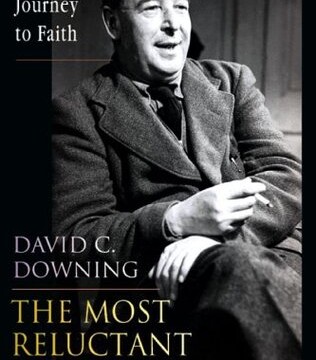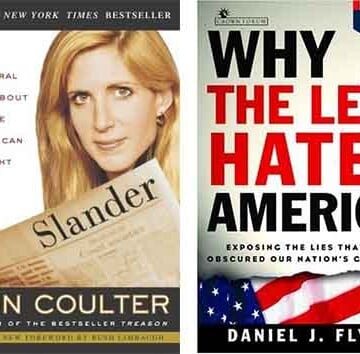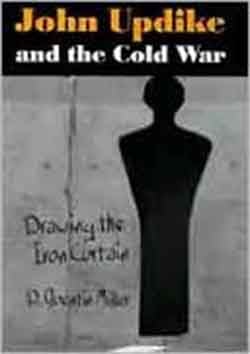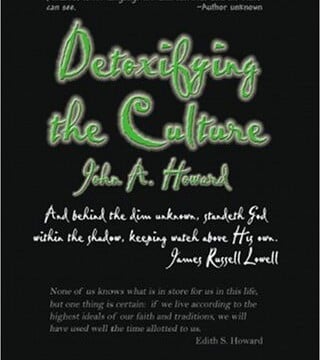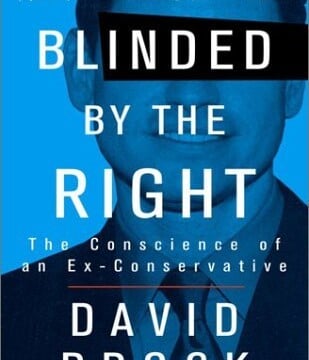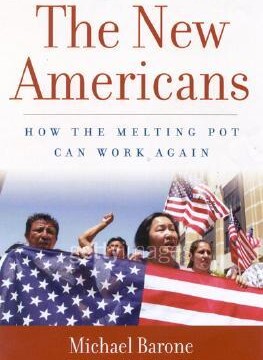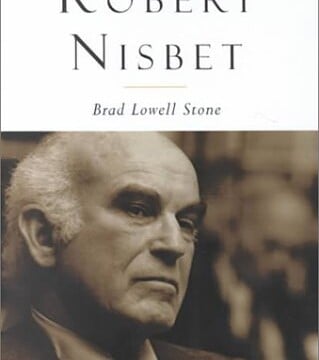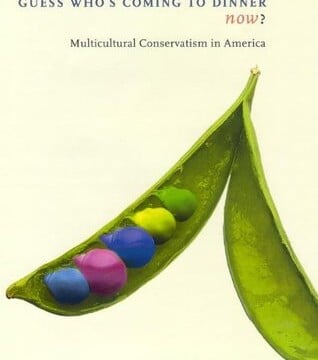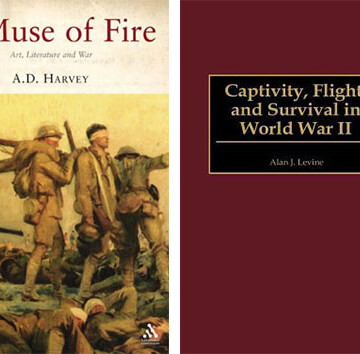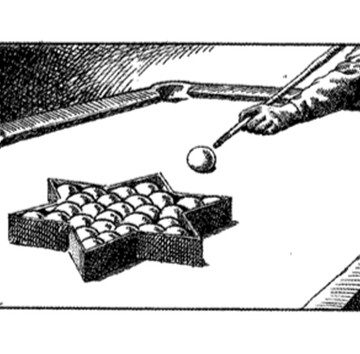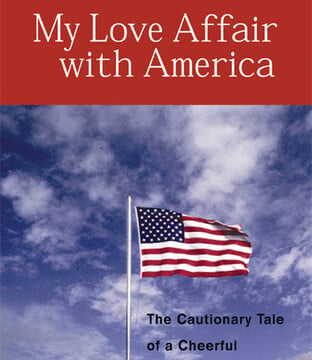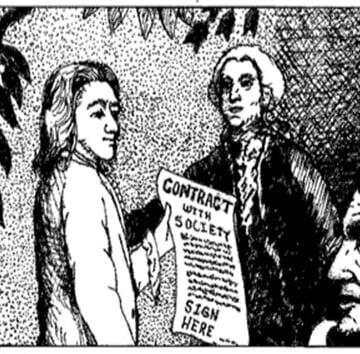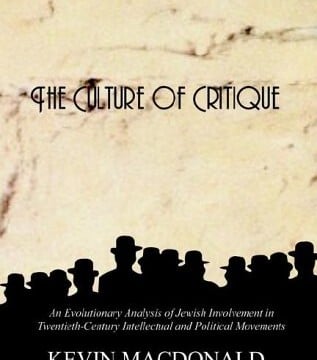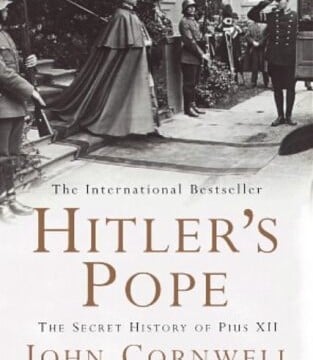A book that has failed to go anywhere internationally, contrary to the author’s expectation, is a recent study by a Chilean Jewish academic who teaches philosophy at the University of Berlin, Victor Farías. His work deals with the youthful thought and career of Salvador Allende, who, between 1970 and 1973, headed the Marxist Government of...
Author: Paul Gottfried (Paul Gottfried)
Setting History Straight
Having sensed in the 1990’s that most European and American reporting about the Balkans was suspect, I find that this investigative study by a young German journalist, associated with the publication Junge Welt, fills in gaping holes in the received account of a controversial phase of recent history. Contributing to my uneasiness over the establishment’s...
Shoddy Goods, Shoddy Selves
Victor Navasky’s memoirs, which discuss his longtime relation to the Nation and how he came to publish that magazine, create for the reader two misleading impressions before he gets beyond the dust cover. Contrary to the blurbs of Bill Moyers, Barbara Ehrenreich, E.L. Doctorow, and Kirkus Reviews, this book is neither “elegant” nor “subversive” nor...
The Ugly Muslims
Russell Berman, the Walter A. Haas Professor of Humanities at Stanford, has published a book, Anti-Americanism in Europe, that focuses on European dislike for the United States. Berman explains that “anti-Americanism has emerged as an ideology available to form a postnational European identity.” In place of the nationalist, anti-immigration mood of the 1990s, anti-Americanism permits...
Felix Culpa
This sprawling and densely written 400-page study of Southern political thought, from Old Republicans John Taylor of Caroline and John Randolph of Roanoke down to Whig social theorists (and humorists) John Glover Baldwin and Johnson Jones Hooper—with wedged-in discussions of such other Southern luminaries as Nathaniel Beverley Tucker, St. George Tucker, William Gilmore Simms, and...
An Oakeshott for Our Time
Paul Franco, a professor of government at Bowdoin College, describes his book on English political theorist Michael Oakeshott (1901-1990) as an “introduction.” That modest claim is fully justified in light of the many volumes on politics, philosophy, aesthetics, education, and religion that Franco’s subject left behind in his productive life of 89 years. Franco observes...
Going Nowhere
Agostino Carrino, a Neapolitan legal theorist now associated with the University of Naples Frederick II, has published a series of tracts (available in Italian, German, and French) aimed at the European Union and its claims to legitimacy. Particularly in his last two works, Democrazia e governo del futuro (2000) and L’Europa e il futuro delle...
Counterrevolutionary Light
Both ISI and Christopher Olaf Blum, who edited this anthology, deserve our thanks for making available in English the six 19th-century French conservative thinkers whose writings are herein presented. Although these men—François René de Chateaubriand, Louis de Bonald, Joseph de Maistre, Fredéric Le Play, Émile Keller, and René de La Tour du Pin—do not display...
The Peculiar Path
A Bavarian legal scholar who has been attached to the U.N. Secretariat and to the E.U. Commission in Brussels, Josef Schüsslburner has disagreements with the German Basic Law, enacted in 1949 as an interim constitution for the West German Federal Republic. The author describes this guiding document and the circumstances that helped shape it as...
Cataloguing What’s Been Lost
Chilton Williamson’s study of the sources of American conservative thought presupposes certain assumptions about his subject that may not be universally shared but are defensible nonetheless. Williamson suggests that American conservatism is essentially paleoconservative, and both his choice of current conservative authors and his comments on Joe Scotchie’s Revolt From the Heartland underline this association. ...
Establishing the Worst
My young German friend Karl-Peter Schwarz, a political correspondent for the Frankfurter Allgemeine Zeitung, sent me an essay last month that was earmarked for his newspaper, about an Italian Christian Democrat and nominee for the post of E.U. commissioner of justice, Rocco Buttiglione. In early October 2004, the Berlusconi government nominated Buttiglione as part of...
The Art of Scam
Roger Kimball, who edits the New Criterion and does art criticism for National Review, has set out to achieve two goals in this thin, concise book: pointing out “the depredations practiced by criticism on art” and aiming “to encourage the benevolent civilizing elements that have traditionally been accorded to our encounters with good art.” Despite...
Where Have All the Nazis Gone?
Back in the 1960’s, as a graduate student at Yale, I kept hearing that the Germans had still not confronted their past. They would do so only when they understood that Hitler, as explained by German leftist historian Fritz Fischer, was not a Betriebsunfall (operational accident) but emerged from Germany’s history, which went in a...
The Unlovely Republic
The most respected historian specializing in the Spanish Civil War and the history of fascism, Stanley G. Payne has never hesitated to challenge received opinions in his field. Like his mentor and friend Burnett Bolloten, Payne has been properly critical of the Spanish Republic, the regime against which the Spanish military and much of the...
Paul Piccone, R.I.P.
The death on July 12 of Paul Piccone, the ebullient editor of Telos, has deprived Chronicles of a close friend and energetic collaborator. Paul exchanged articles and ideas happily with the editors of this journal and invited Thomas Fleming, Samuel Francis, and me to participate in his never-ending conferences, always put together on the spur...
I.O.U.: $10,000
The Case for Israel by Alan Dershowitz New York: John Wiley & Sons; 264 pp., $19.95 Alan Dershowitz’s brief on behalf of Israel has at least some truth on its side. Had the Arabs accepted the territorial partition arranged by the United Nations in 1947, far fewer of them would today be living in exile; and...
Whose Globe, Whose Europe?
A widely publicized essay, “The Collapse of Globalism and the Rebirth of Nationalism,” by John Ralston Saul, appeared in the March issue of Harper’s. It is an extended attack on the Enlightenment and its global effects, launched from the multicultural left, which dwells on the happy turn of events that has allowed “positive forms of...
Inhuman Rights
Since the father of the French (and, by now, European) New Right, Alain de Benoist, sent me an inscribed copy of his most recent book, Au-Delà des Droits De L’Homme (Krisis, 2004), I read the text attentively. Like him, I have wondered why natural rights (now called human rights) have become, in the words of...
Dissensions by an Objective Reactionary
Andrei Navrozov’s newest book of reminiscences is intended to be the literary and photographic proof of his “internal exile.” By this term, he underscores his distance from the present age, in which philistine housewives have seized control of our social and political institutions and mass culture has become increasingly degraded. In this present time of...
Evildoing Nations
On October 3, in an address celebrating the anniversary of German reunification, a Hessian deputy to the German Bundestag and a member of the CDU/CSU steering council, Martin Hohmann, committed a gaffe that led to his removal from his party position five weeks later. The party leader who justified this sacking, Angela Merkel, complained that...
Lies and More Lies
Having come across several references this spring to a French literary critic, Jean Sévillia, who is criticizing leftist historical reconstructions, I read his two most recent books, Le Terrorisme Intellectuel (2000) and Historiquement correct: Pour en finir avec le passé unique (2003). An associate editor of Le Figaro magazine, Sévillia makes clear that he is...
Allowing Affirmative Action
The Supreme Court’s ruling allowing affirmative action at the University of Michigan but striking down the school’s system of racial quotas led Linda Chavez, in a syndicated column entitled “Supreme Mischief and Racism” (June 26), to warn against desecrating a sacred vision. Forty years ago this August, “the Rev. Martin Luther King gave a speech...
Le Monde, the Flesh, and the Devil
A livre à scandale in France this year is a heavily documented work by two veteran freelancers, writer-researcher Pierre Péan and Philippe Cohen, editor of the French satirical publication Marianne. La face cachée du Monde, which runs over 600 pages, was put out by the very independent press Mille et Une Nuit, over threats of...
The Continuing Revolution
In his critical work about the bicentenaire of the French Revolution, Le Grand Déclassement, French historian Pierre Chaunu explores the first stages of the unraveling of the glorification of France as a revolutionary nation conceived in 1789. By the time Chaunu’s book was published in 1989, however, the official celebrations had been both scaled back...
It’s the Stupids, Stupid!
Herb London’s newest book, a relentlessly critical view of American morals and culture in the 1990’s, makes two pivotal observations. First, the moral deterioration that journalists associate with the Republican “decade of greed” (the 80’s) actually took place, partly thanks to the media, in the 90’s. Second, the major impact of the Clinton presidency was...
Plus ça Change . . .
In the December 27, 2002, issue of the English edition of Forward, self-described Orthodox Jew David Klinghoffer attacks Aleksandr Solzhenitsyn for his recent book Two Hundred Years Together. In this historical work, Solzhenitsyn deals with Jews and Russians living side by side from 1775, when Russia came to occupy the heavily Jewish regions of Eastern...
Myth of Ages
David C. Downing’s study of C.S. Lewis and his conversion to Christianity in his early 30’s offers more than the title might suggest. What we are given is not a repetition of the well-known narrative from Surprised by Joy, in which Lewis recounts his journey from youthful atheism to Christian belief 15 years later. Nor...
Light Slander, Heavy Artillery
Both of these books are written by young, self-styled conservatives; both demonstrate indisputably the unfounded charges made against the “right” by the media and academics; both easily devastate the biased and factually inaccurate statements about Republicans, conservatives, and the American past and present that emanate from the cultural left. The TV personalities Ann Coulter goes...
A Welcome Anniversary
On July 13, the German weekly Junge Freiheit celebrated its 15th anniversary. This is astonishing, considering the outrages committed against the publication, including the burning of its printing facilities in 1994 and the five-year-long public warning against the paper issued by the provincial government of Nord-rhein-Westfalen for “intimations of a disposition sympathetic to the far...
The Rest of the Story
In this densely composed study, E. Michael Jones, editor of Culture Wars and outspoken Catholic traditionalist, tries to explain why American inner cities have been physically and socially devastated. Investigating four metropolitan areas that he knows well—Philadelphia, Chicago, Detroit, and Boston—Jones argues that established urban neighborhoods did not deteriorate simply because of economic crises or...
A Week of Mondays
“There is always a certain meanness in the argument of conservatism, joined with a certain superiority in its fact.” —Ralph Waldo Emerson What helps set this study apart is its still largely verboten subject. Joseph Scotchie devotes his attention to that part of the American right that Lee Edwards, Jonathan M. Schoenwald, and William Rusher...
The Dreary Icon
Linda Raeder’s study of John Stuart Mill as a critic of religion and, more specifically, of Christian beliefs and morals is heavily researched and densely composed. Although carefully and gracefully framed, it is too conceptually demanding to please dull-witted movement conservatives or politically correct academics. Those who disregard this study, however, are missing a devastating...
All the World Against It
In this impressive collection of speeches and essays reflecting decades of somber thought, John A. Howard, senior fellow in educational philosophy at the Howard Center, takes stock of changing American manners and values. What makes these comments especially noteworthy is the distance between Howard’s accomplishments and the irremediably “toxic” culture that he criticizes. The...
MLK and Terrorism
On February 12, an endorsement of the United States’ war against terrorism, organized by the “nonpartisan” Institute for American Values, went out to President Bush and the national media over the signatures of what the U.S. State Department described as “sixty prominent U.S. academics.” The term “prominent academic” can now be applied to Bill Kristol,...
Talkin’ ’bout My Generation
Reading this account of David Brock’s journey from the “bigoted” right to a left-liberal politics that allows him to embrace his homosexuality was no kind of pleasure. Luminous observations in the book are few and far between, while betwixt them are ponderous revelations pertaining to David’s sexual awakening, his relations with a “blond blue-eyed dreamboat...
Capitalism and Civilization
Michael Novak has repeatedly argued (recently, in a lecture here at Elizabethtown College) that our economic system is “permanently attached to a Judeo-Christian culture,” but history suggests otherwise. Although capitalism developed within a Christian culture, it has also actively undermined that culture’s moral and spiritual foundations, as the use of the market by the entertainment...
Something Is Missing
“If anyone wish to migrate to another village, and if one or more who live in that village do notwish to receive him, if there he only one who objects he shall not move there.” —The Salic Law, c. 490 In this commentary on the American experiment, Michael Barone declares that...
Amos Perlmutter, R.I.P.
As a man and scholar, Amos Perlmutter (1931-2001) stood out for his intellectual honesty, although rectitude in this case was wedded to a jovial personality and an unfailing wit. Having emigrated as a child alongside his parents and sister from Europe to Israel, Amos served his adopted country as a military officer. By all accounts,...
The Last Aristotelian
This compact and thoughtful biography by the director of American Studies at Oglethorpe University underscores a recurrent problem affecting the reputations of conservative social thinkers. Even those who once enjoyed well-deserved celebrity cease to be widely studied after they are gone. Save for the interest of devoted disciples with quite limited media access, the contemporary...
Yes, Ma’am. And Will There Be Anything Else, Ma’am?”
According to Angela D. Dillard, “women and minority conservatives have begun to alter irrevocably the tone and complexion of contemporary conservatism.” Despite the leftist affinity of most gays, blacks, Hispanics, and self described feminists, “pariah minorities”—whom Dillard views as belonging to larger “outcast” groups—have come to identify with the American right. Consisting of independent (though...
The Janus Faces of War
A. D. Harvey’s study of art and war, while noting the suffering caused by the European wars of the 19th and 20th centuries, highlights the artistic and spiritual creativity released by these struggles. He regards the Great War, unlike World War II (which produced for the most part “tired accents”), as an exhilarating contest, which...
The International Jewish Conspiracy
Any conversation about conspiracy theories inevitably turns to “the Jews.” On one hand, the critics of “international Zionism” claim that U.S. foreign policy (or the world’s resources) are being devoted to promoting Israel’s interests; on the other, there are those who warn against an “international Jewish conspiracy.” The second group can be traced at least...
The Executioner’s Tale
This “celebration” of his intense love affair with America will not likely teach Norman Podhoretz’s devotees anything new. For the most part, it incorporates material that can be found in earlier autobiographical writings and in Podhoretz’s other published recollections about life in New York literary circles. My Love Affair With America includes an extended description...
Distrusting John Locke
John Locke has been interpreted in various ways that appeal I to conservatives—e.g., as a Christian, albeit a materialist and anti-Trinitarian, or as a qualified defender of private property— but there is a general drift to his thought that should offend traditionalists. His view of human beings as thinking matter without the capacity for innate...
Mad Cows and Englishman
In recent months, several works have appeared that throw light on the attitudes and concerns of various rightist movements lacking the imprimatur of an established right. While it is hard to generalize about the disparate thinkers and groups featured in these books, they are alike in having no relationship to the American right. Also characteristic...
Onward and Upward
Like the Roman cursus honorum, the ascending path of neoconservative success is carefully prescribed. Instead of the progress from aedile to consul, however, the journey leads through hackwork up to the glories of publishing with Basic Books, appearing on TV talk shows, and gracing the mastheads of neocon magazines. David Frum managed to move through...
The Myth of “Red Fascism”
In a recent discussion with a younger colleague about his book-in-progress on American historian Richard Hofstadter, I learned that, during the student riot at Columbia in 1968, Hofstadter repeatedly likened student radicals to European “fascists.” My colleague found this remarkable, given the fact that Hofstadter had spent decades agonizing over the “paranoid style” of the...
A Race Apart
“A people still, whose common ties are gone; Who, mixed with every race, are lost in none.”—George Crabbe Kevin MacDonald’s study of the Jewish people in sociobiological perspective will not likely help his career, for reasons having nothing to do with the author’s scholarship or his accumulation of pertinent evidence. While...
Christophobia
In the December 1999 issue of Commentary, Irving Stelzer took Peter Brimelow to task for wanting to restrict immigration. Setting the facts aside, Stelzer accuses Brimelow of being a fan of the “old-line WASP population” that had produced perk-laden corpocrats who so mismanaged America’s major companies as almost to bring the economy to ruin before...
Stylish Mendacity
A wash in reviews of Cornwell’s portrait of Pius XII, I felt surfeited by the book even before it arrived in the mail. To call this biography unflattering is meiosis. John Lukacs is right to say that, while Cornwell’s production is being featured by the History Book of the Month Club, history itself is what...


